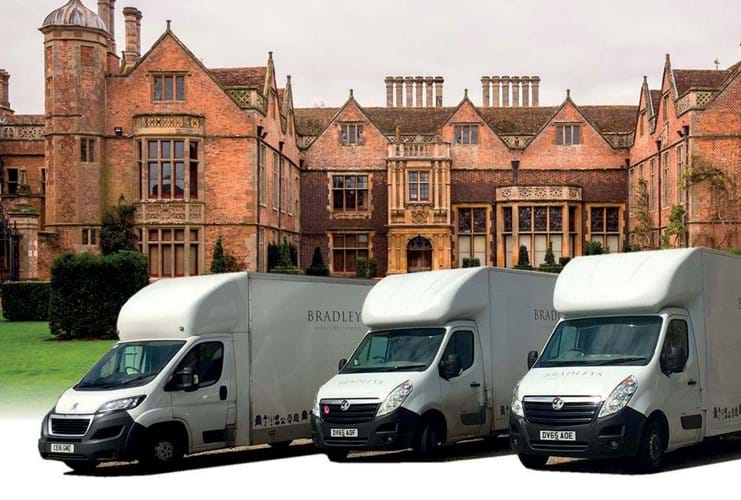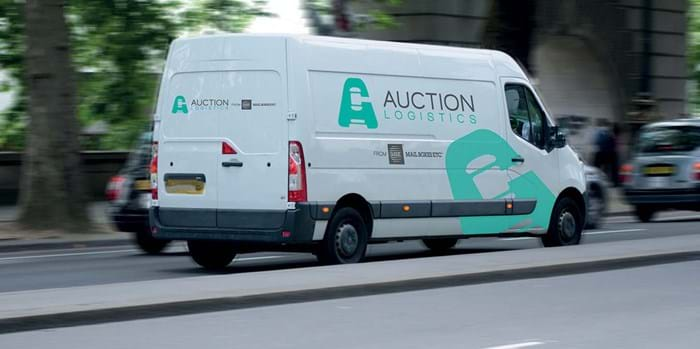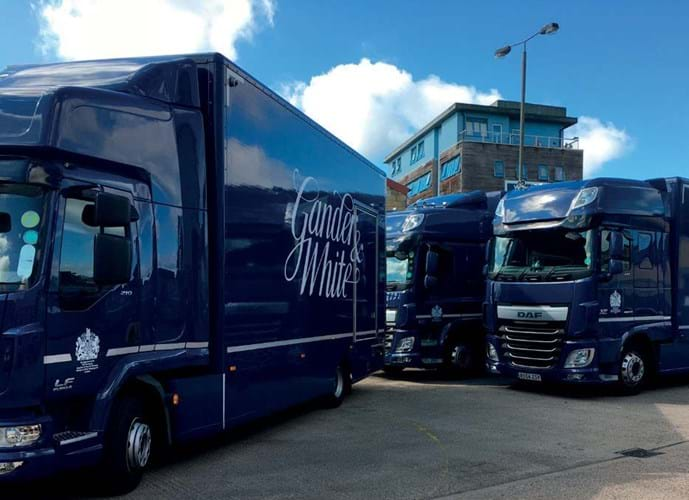While some of the population were stockpiling loo roll, plain flour and pasta ahead of the UK lockdown in March, logistics specialist David Forster was fitting out two of his vans with showers and toilets.
Forster runs Art Move UK from his home in Hexham, Northumberland, and with his small team they travel the UK and Europe delivering art and antiques.
With hotels closed during lockdown, Forster had to improvise.
“I have been living in my van for four days a week. I cannot wait for the hotels to reopen,” he said.
Logistics and haulage firms were given the all-clear to continue operating during the lockdown period and even though many auctions and all fairs and markets were postponed, there was still a small but thriving online art and antiques trade to service.
And although business continued, all firms have had to adjust to ensure safety for customers and staff.
New review
During the lockdown most of Mail Boxes Etc’s 150 centres continued to operate. Duncan Hypher, business development manager at Mail Boxes Etc in the UK, says: “Operating processes were altered to meet the government guidelines and opening hours changed to reflect staff availability and safety.
“We responded to bidding customers and auctioneer enquiries and supported ‘online-only’ auction house sales throughout the period.”
Mail Boxes Etc says the franchisees who run its Auction Logistics service introduced new safety measures for handling lots (known as ‘contactless shipping’). Hypher adds: “Every aspect of the process – scheduling, collection, packing, shipping, carrier selection, and customer liaison - was reviewed and adapted where necessary to suit the circumstances.”
Crisis management
Many firms were operating just a skeleton staff as demand reduced.
Gander & White’s executive operations director Victor Khureya says: “When lockdown was first introduced, we had a small crisis team and we were able to give estimates and answer client queries.
“We also had a small crew of technicians, servicing clients’ emergency needs and monitoring the warehouses. As lockdown relaxed, we started to come in and the number of staff increased. Many are still furloughed, and more staff will return gradually as work increases. This is a difficult decision for companies as bringing people out too quickly will mean there is not enough work to do.”
All G&W’s staff use PPE and sanitiser and vehicles are cleaned twice a day. For larger jobs G&W completes risk and site assessments beforehand to ensure it will be possible to socially distance and maintain hygiene protocols.
Like the rest of the economy, the delivery and shipping businesses are slowly emerging from lockdown and assessing the new normal in the antiques and art trade.
Hypher adds: “Enquiries grew significantly in May, as more auctioneers held virtual sales and growth accelerated during the first half of June, exceeding the May total. By mid-June customer enquiries and quote requests had reached a similar level to that just before the pandemic occurred.”
Demand surge
Based in north-east England, Greg Bradley runs both Bradleys Furniture Carriers and Bradleys Antique Packing Services and reports demand has surged.
“We are busier than ever – we are booming. Customers have been stuck at home and buying at auction or from dealers remotely,” he says.
The firm has brought some of its staff out of furlough and will be bringing back the rest gradually. The firm’s drivers are also looking forward to hotels reopening from July 4 so long-distance journeys can become more palatable.
One element of delivery that remains quiet for now is international logistics – both for air freight and shipping.
G&W’s Khureya explains: “Air freight costs have soared. Aeroplane fleets have been grounded and only essential items such as food, medicine and PPE were prioritised on the few flights that had been able to proceed. This has meant the costs have increased significantly. Many clients have been holding back on international deliveries because of this cost.
Bradley predicts costs to stay high for a while. He says: “If the economy continues to worsen then there will be fewer ships so freight costs will continue to rise and I expect prices to be high for a while.
“For example, I am shipping two chairs in two boxes to the US by air and it is £700 just for the basic cost, when prior to the lockdown it was around £550.
“Similarly I am shipping a crate containing a table to Australia for £850 when five years ago I could send a 20ft container for £900.
“But wealthy collectors and buyers will still be able to afford this and at the moment there is still demand despite the price increases.”
These export and import issues are in the shadow of Brexit and the delivery sector questions what will happen after December 31 when the transition period ends.
Khureya says: “We do not know if there will be an extension. The government has spent months dealing with Covid-19 and little progress has been made on what happens after December 31.”
Although the majority of the art and antiques sector across the UK is returning to work, albeit under strict health and safety guidelines, the very high end of the sector is slower to return.
Many gallery staff have been working from home, no high-value art fairs took place during lockdown (except digitally), a number of auction houses were temporarily closed and museums had been force to shut their doors.
Khureya says: “A lot of our work has paused but it is coming back slowly and gradually. Many galleries we have spoken to may not reopen until the autumn as without international visitors and also the usually quiet summer period, they believe business will be very slow.”
However, online sales remain steady. James Simmons, marketing manager at Mail Boxes Etc, says: “Given the significant switch in customer behaviour to online purchases during the lockdown period, as well as some likely customer trepidation to visit more densely populated environments, we would expect to see an increase in remote buying.
“Our franchisees have reported from their visits to auction houses that auctioneers are encouraging remote bidding due to reduced capacity – with social distancing limiting the number of physical bidders that auction rooms are able to accommodate.”
Consigning items to auction has been an issue for some sellers and Mail Boxes Etc is one business assisting in the process. Simmons adds: “The future challenge is to make sure that the network is nimble enough to adapt to auctioneer requirements, changes in customers’ buying behaviour, environmental changes such as social distancing, and technological changes as new techniques for safe handling in transit and contactless delivery are developed.”
As national governments continue to ease restrictions on their economies, businesses will adjust further to the ‘new normal’.
Could there even have been some benefits for firms? Khureya believes so: “A silver lining to take from this period is that we have changed procedures and systems and many of these are for the best and will stay in place in the longer term, improving business and efficiencies.”





















